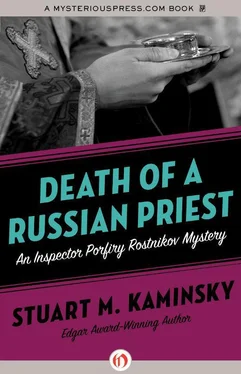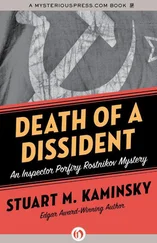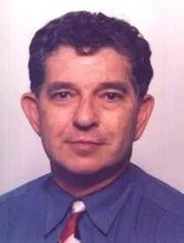Stuart Kaminsky - Death Of A Russian Priest
Здесь есть возможность читать онлайн «Stuart Kaminsky - Death Of A Russian Priest» весь текст электронной книги совершенно бесплатно (целиком полную версию без сокращений). В некоторых случаях можно слушать аудио, скачать через торрент в формате fb2 и присутствует краткое содержание. Год выпуска: 2012, Жанр: Полицейский детектив, на английском языке. Описание произведения, (предисловие) а так же отзывы посетителей доступны на портале библиотеки ЛибКат.
- Название:Death Of A Russian Priest
- Автор:
- Жанр:
- Год:2012
- ISBN:нет данных
- Рейтинг книги:3 / 5. Голосов: 1
-
Избранное:Добавить в избранное
- Отзывы:
-
Ваша оценка:
- 60
- 1
- 2
- 3
- 4
- 5
Death Of A Russian Priest: краткое содержание, описание и аннотация
Предлагаем к чтению аннотацию, описание, краткое содержание или предисловие (зависит от того, что написал сам автор книги «Death Of A Russian Priest»). Если вы не нашли необходимую информацию о книге — напишите в комментариях, мы постараемся отыскать её.
Death Of A Russian Priest — читать онлайн бесплатно полную книгу (весь текст) целиком
Ниже представлен текст книги, разбитый по страницам. Система сохранения места последней прочитанной страницы, позволяет с удобством читать онлайн бесплатно книгу «Death Of A Russian Priest», без необходимости каждый раз заново искать на чём Вы остановились. Поставьте закладку, и сможете в любой момент перейти на страницу, на которой закончили чтение.
Интервал:
Закладка:
“I do not think so, but I do not know.”
“Let’s test it. Where is Peotor Merhum?”
“He has run away or is hiding,” said Karpo, “because he was guilty.”
“Are there other reasons he might be missing?”
“Many,” agreed Karpo. “He could be dead, a suicide. He could be murdered because he himself is not the murderer but has discovered who the killer is. He might even be drunk and asleep somewhere, but we have the evidence of the nun’s journal.”
“Are you developing a sense of humor, Emil Karpo?”
“I am not trying to be humorous
“The nun’s journal,” Rostnikov went on. “It is a strange piece of work, a very curious document. Did you notice that?”
They were walking slowly, ignoring the glances of the clusters of people who watched the odd duo.
“In what way curious?”
“How does the journal refer to the son of Father Merhum?”
“As ‘the son,’” said Karpo.
“Yes, never by name. Why never by name? Why not Peotor?”
“I do not know.”
“The entry on May second, 1959, refers to the coming of a son,” Rostnikov continued. “If the son is Peotor, that would make him thirty-three years old. But Peotor Merhum is thirty. We have his records. I have your notes. He refers to the coming of his son three years before Peotor is born.”
“Then there is another son,” said Karpo.
“Another son,” agreed Rostnikov.
“And he bears a scar on his chest from a trip to the monastery at Pochaev.”
They had reached the edge of town. The house where Sister Nina was murdered and Father Merhum had crawled to die was through the woods to their right. The church stood in front of them. A huge crow flew out of the woods and over their heads. Rostnikov paused to watch it. Emil Karpo paid no attention.
“I will bet the Ed McBain novel in my coat that Peotor Merhum has no scar on his chest,” said Rostnikov.
“I would have no use for your Ed McBain novel, Comrade Inspector. I do not read English nor do I enjoy fiction.”
“Then,” said Rostnikov, “let us not bet. Is there a man in the village who bears such a scar on his chest?”
“We can check the birth records for that day and the months before,” Karpo suggested. “But …”
“Ah, you have an idea?”
“The poem, the poem from the Bible. Perhaps the son was not born on May second, 1959. Perhaps he came to Arkush around that date. He was not born to Father Merhum on that date, but appeared in Arkush on that date.”
“Yes,” said Rostnikov. “And now we seek someone with a scar on his chest who came to this town around that date thirty-two years ago.”
“Back to the records?” asked Karpo.
“Back to the records, Emil.”
Two men and a woman were coming down the steps of the church. One man was carrying a camera of some kind on his shoulder. The other man had a metal box strapped over his shoulder and a microphone in his hand. The woman, eyes eager and determined, bounded toward them with notes in hand.
“The television,” said Rostnikov. “Before the reforms we did not suffer the benefits of openness. Go, Emil Karpo. I will weave them a tale and send them seeking shadows.”
Emil Karpo hurried away and the trio approached Rostnikov.
“You are Inspector Porfiry Petrovich Rostnikov,” said the woman.
Rostnikov had turned and was heading back toward the center of Arkush. “I am aware of that,” he said. “But I assume you must ask such questions for your viewers.”
The woman, who had on far too much makeup, seemed perplexed but determined. “Do you have any ideas about who killed Father Merhum and Sister Nina?”
“Yes,” he said.
“And?” she prodded.
“I can see no good to be served by my sharing such information with you,” said Rostnikov. “The curiosity of your viewers would not be well served by my speculations.”
“The old days have passed, Inspector,” the woman said, sensing that she might have nothing to salvage, so she might as well provoke. “Russian citizens have a right to know what you are thinking.”
“I am thinking about the house in which I lived as a child,” said Rostnikov. “I’ve been trying to remember where each item of furniture was and what it looked like. It is like a nagging refrain from a song.”
The woman put up her hand and muttered something under her breath. “Turn it off, Kolya,” she then said.
Rostnikov limped slowly away.
Through the small window in the tower of the church Peotor Merhum looked down at the policeman who was limping away from the television woman.
Peotor had been hiding for eight hours now, and he had decided to come down from the tower. He did not intend to give himself up, because he wasn’t absolutely certain the two policemen were looking for him. However, given what he had been told, there was little doubt that he was the prime suspect in the murder of Sister Nina and his father. So he would simply climb down and go about his business. If they wanted him, they could come find him.
Peotor ate his last unwashed radish. As a boy, he had hidden in this tower hundreds of times among the musty books and furniture parts in storage until they might be rediscovered and thrown away.
Peotor needed a toilet. He needed a shave. He could think of nowhere to run. Panic had overtaken him. But the panic had eased and he had come to the conclusion that he had to bluff it out. Through the thin, dirty window he could hear the voices on the street. It was growing cold, but they were out there, carrion birds waiting to feed on the corpses, to pluck out the eye of a story or the tooth of a rumor.
Peotor was not sure what time it was. He had no watch. But he felt certain it was nearly noon. His legs were cramped but not badly. He tried to think, to make up a story, but his mind just kept going back to the mutilated body of the nun. He had stood over what was left of her in the room that had been his father’s. He had stood over her and looked at the blood on his hands and then he had run.
When his legs felt strong enough, he moved to the trapdoor in the floor of the tower and opened it. Below him was a face. He staggered back.
“What are you doing here?” he demanded.
The man climbed up and closed the trapdoor behind him. “Looking for you,” he said.
“I’m coming down.”
“Why did you run?” The man wiped the window with his sleeve and looked down.
“Why did I run? They think I killed him. When they find out about what he did, they’ll be sure,” said Peotor.
“How will they find out?” the man asked.
“How? Who knows? Sonia maybe. I don’t even know if Alex knows,” said Peotor, rubbing his bristly chin. “I hated him, but you know I wouldn’t kill him. I should have, but it isn’t in me. I rant and complain. You know that. Everyone knows that. But it isn’t in me to kill.”
“No,” agreed the man, turning to him. “It is not.”
“Maybe they’ll catch whoever killed them. Then I will-”
“No,” said the man. “They cannot catch him. If they catch him, they will know our secrets. Do you want them to know?”
“No, but what makes you think the murderer would know that he-no one would believe that a priest, an old priest, would try to seduce his own daughter-in-law.”
“Many would believe,” said the man. “I believe. People have believed far worse stories about priests for more than seventy years. I have believed such stories.”
Peotor shook his head. “Still, the murderer almost certainly could not know about you.”
“He knows.”
Peotor looked at him, and when their eyes met, he knew what he did not want to know. “You killed them,” he said.
“You knew I killed them.”
“I didn’t.”
Читать дальшеИнтервал:
Закладка:
Похожие книги на «Death Of A Russian Priest»
Представляем Вашему вниманию похожие книги на «Death Of A Russian Priest» списком для выбора. Мы отобрали схожую по названию и смыслу литературу в надежде предоставить читателям больше вариантов отыскать новые, интересные, ещё непрочитанные произведения.
Обсуждение, отзывы о книге «Death Of A Russian Priest» и просто собственные мнения читателей. Оставьте ваши комментарии, напишите, что Вы думаете о произведении, его смысле или главных героях. Укажите что конкретно понравилось, а что нет, и почему Вы так считаете.












